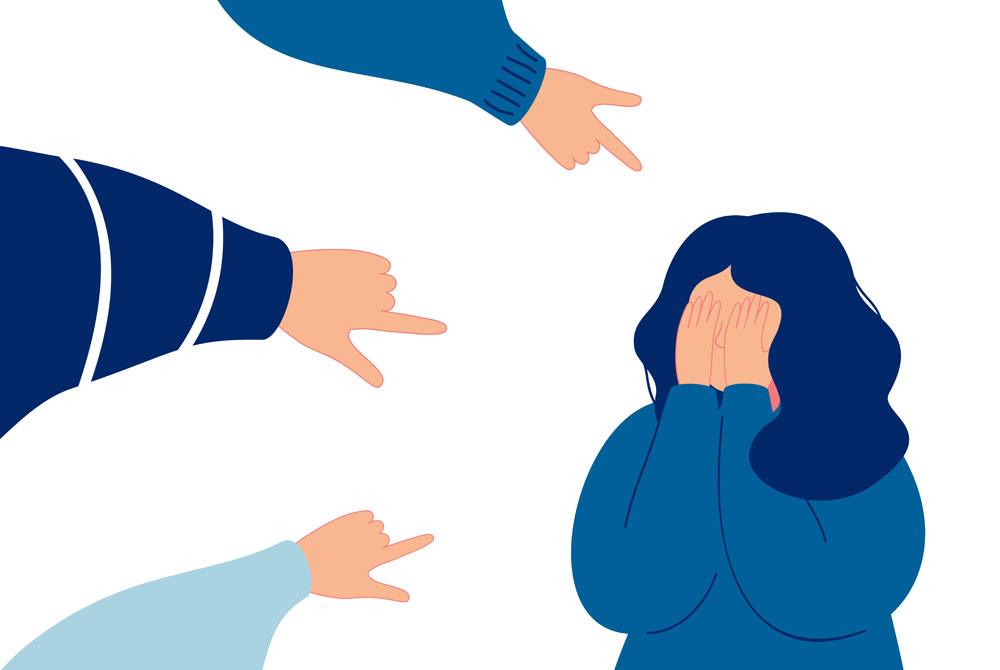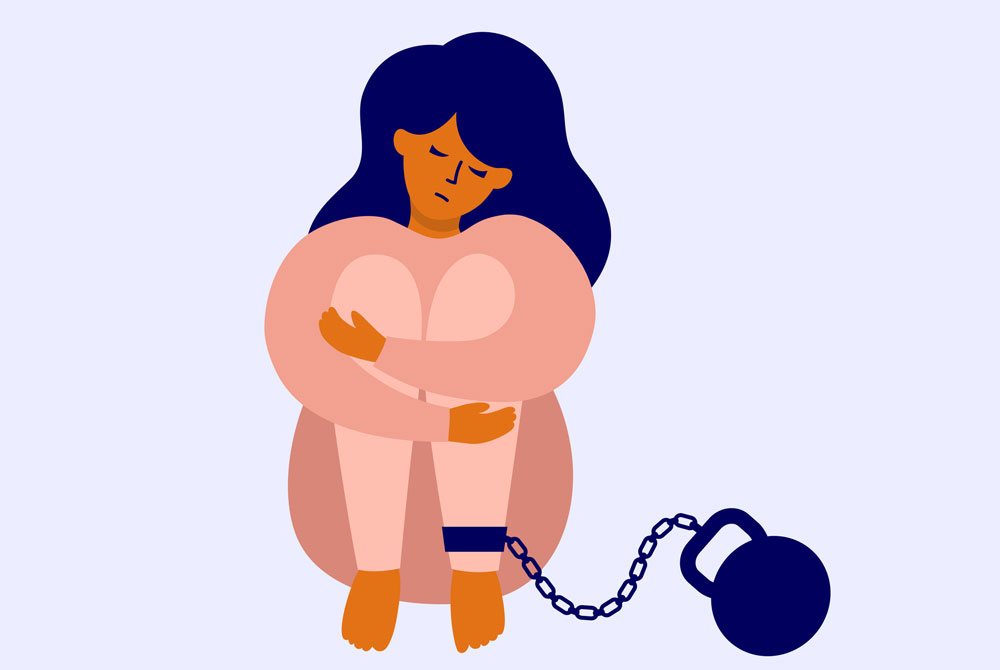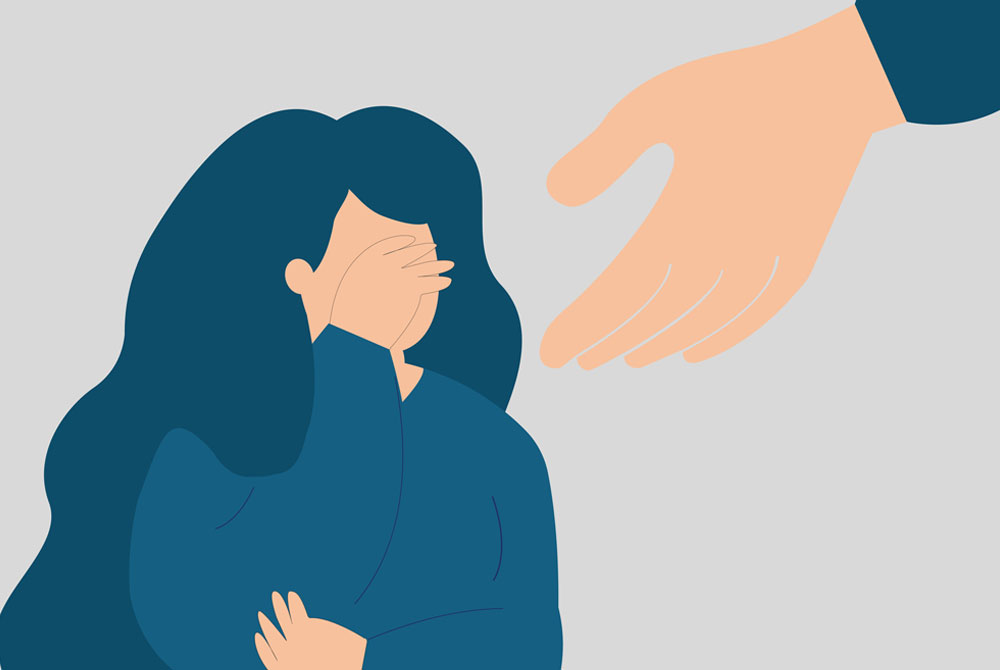Whether you’re at the beginning of your recovery journey or are years or decades into it, overcoming shame can be one of the most difficult emotions to navigate and combat during your journey. If you or a loved one is in recovery from a substance use disorder, then the journey can feel perilous, impossible, and full of intense emotions. The impact of SUD can leave entire families struggling to understand and cope with the constant changes, fear, and uncertainty that can occur on a day-to-day basis.
Shame: A Barrier to Addiction Recovery
Out of every emotion, shame produces the highest cortisol levels in an individual. Cortisol is a vital hormone for regular bodily functioning.
It affects nearly every organ in your body and continuously works to maintain homeostasis by:
- Metabolizing fats and proteins
- Balancing your stress levels
- Controlling your sleep cycle
- Reducing inflammation
- Regulating blood pressure and blood sugar
Some physical symptoms could be:
- The feeling of your throat closing/tightening
- Breaking out into a sweat
- Digestive issues such as excess acid and stomach aches
- Tightening in the chest or quickening heart rate and palpitations
Shame can lead families to feel betrayed by their loved ones due to their inability to understand what is happening to them and why they have suddenly become avoidant. Shame is an invisible monster, eating away at your self-worth and causing you to believe false truths about yourself and those around you. It is not always immediately noticed or understood, even by people you are closest to, but it is nonetheless one of the most intensely felt emotions.
Therefore, when individuals experience shame in recovery, it can often prove a barrier to maintaining lasting recovery. If you cannot move past the strong feelings of guilt, you may begin to believe that you deserve these feelings and that this is your punishment for hurting a loved one.
Guilt and Shame: Different Emotions
Oftentimes, shame and guilt get lumped into one emotion. You may understand that shame and guilt both equate to feeling bad about something you did in the past, and on many occasions, this bad feeling can be associated with hurting another individual, whether physically or mentally. Both shame and guilt can arise from the same occurrence, making them seem like the same emotion, but in actuality, shame is much more deeply internalized than guilt. Shame takes guilt to the next level and manifests itself in ways that can deeply affect your confidence and quality of life.
Guilt is often felt if you know or suspect you are responsible for causing another person physical or mental harm, whether on purpose or accidentally. This could be something as simple as borrowing a family member’s car and then getting into a car accident. You may feel bad because your family members trusted you with their possession, and you let them down.

A person who feels guilty for what they have done will recognize the situation for what it is. They may understand that although it was unfortunate that an accident occurred and maybe even could have been prevented, accidents do happen, and there is nothing they can do to erase the past. Therefore, a guilty person will do their best to correct the situation, such as helping to pay for the damage and apologizing sincerely to their loved one.
However, someone experiencing shame would be unable to see past their wrongdoing, causing a rift in their self-esteem and their relationship with another person. Looking at the same example of the car accident, a person who experiences shame may not try to make amends, apologize, or see past the mistake; a shameful person may instead withdraw from the family member whose car they borrowed, causing a rift to occur in the relationship.
On the outside, it may seem like the person does not care that they made a mistake, but in actuality, they have internalized the mistake so deeply that they may not be able to bear looking into the eyes of their family member or even apologizing because of how bad they may be feeling about themselves inside.
Shame is thus a deep, personalized feeling of self-hatred that comes about when you make a mistake or hurt another person, causing you to then internalize the mistake and believe that you are, in fact, a bad person. In turn, this can lead you to commit more destructive actions against yourself or others.
How Shame Affects Addiction Recovery
Much like the car accident example, a person in recovery oftentimes experiences a rift within their relationships with their loved ones. This can be due to the behaviors, mannerisms, or actions they exhibited while using. While actively using substances, for example, you may say or do things that you would never think about saying or doing otherwise. You may commit actions out of impulse or desperation only to later look back on them while in recovery with shame.
These feelings of shame can be hard to shake. People in recovery may not be able to recognize a situation for what it actually is. If this applies to you, you may not be able to verbalize your feelings of fear of experiencing even more self-doubt or criticism than you already are.

Shame can be a very dangerous emotion for people in recovery. It can cause you to withdraw, hide away your own feelings, and feel hopeless and like a burden to those around you. Shame can even lead to thoughts of relapse if you feel like you are the problem, that the people around you are better off without you, or that no matter what you do, these feelings will not fade, leaving you feeling stuck for long periods of time.
Overcoming Shame During Addiction Recovery
When you are in recovery, it is important to recognize how shame may be contributing to your declining mental health, leading to more serious issues such as anxiety and depression. What is important to remember is how far you have already come in your recovery journey and that there are always helpful coping strategies available for you to overcome these feelings of shame and get back to a normal life.
Although shame can feel very subconscious and impossible to control, it is important to recognize your own part in experiencing shame within your addiction. Shame may not be an emotion you choose to experience, but you are able to choose how you respond to it. When you experience intense bouts of shame, it is important to recognize it for what it is.
Try to discern your patterns or triggers for when you experience the most intense feelings of shame. Does shame occur after you think certain thoughts, see certain people, or partake in certain actions?
Take a Deep Dive
Dig into shame, investigate it, and get to the roots of it. Shame always comes from a source, and beginning to recognize this source may be the first step in overcoming this intense emotion. It will be uncomfortable digging into deep areas of your mind and memories, but understanding where your shame comes from can help rationalize it and combat it more when it occurs.
Begin the Process of Letting Go
Shame is often connected to regret, and regret is typically connected to something that occurred in the past. Today is always a new day, and as more days go by, you are further away from the self that existed in the past. Letting go is one of the most difficult things that people have to do, but it is vital in order to move on. When you experience shame, begin thinking about what you may need to let go of it. Start making amends with yourself and the people around you, and practice self-forgiveness. You are a new person today and tomorrow.

Don’t Be a Bully
One of the most harmful things people can do during their recovery journey is bully themselves. We are all people, and naturally, we all make mistakes. We all have days that are worse than others, and we all do things we regret. If you hold on to everything you have done wrong and continuously be mean to yourself because of it, you are being counter-productive to your own recovery journey. It is one thing to apologize to the people you have hurt around you, but you must not forget to apologize to yourself. We are often our own biggest bullies.
Build Your Support Network

Find people who understand and want to help. Negative people inflict more negative thoughts upon our fragile self-esteem. Instead, it is important to surround yourself with people who have your back, who care about your success, and who lift you up when you are down. The more of these people you can incorporate into your life, the easier your recovery will become because you will have a support group to always talk through the bad feelings you are experiencing.
Focus On What You Can Control
In life, there is much that is completely out of your control. Sometimes it is easy to get stuck on things you have said or done in the past that make you feel guilty inside, but the past is out of your control. When these feelings arise, focus on what you can control, such as what you will do tomorrow.
Build a Sanctuary
Ultimately, as humans, we all want to feel safe and secure. Every person has different people, places, and hobbies that can give them feelings of security. The important thing is being able to recognize them. So often, we spend our time with people or in places that do not benefit our overall well-being, but we have the power to make proper changes to establish a deeper sense of security within ourselves. If running is what makes you feel safest, go on more runs. If being in a quiet space helps you feel safe, find a place where you can embrace solitude. These are solutions for everybody if they are willing to try to find them.
Ways to Help a Loved One Experiencing Shame
Watching someone struggle can be difficult and uncomfortable. One instinct you may have is to avoid the person or flee the situation. However, when dealing with someone who is most likely experiencing feelings of worthlessness while in recovery, this can be extremely harmful to their self-confidence. Humans need each other, and having support can be vital for recovery.
While it is healthy to develop boundaries to maintain the relationship in a way that is safe for you, try to practice these helpful tips:
- Be Positive – Don’t let your mind stray to everything that could go wrong; instead, practice positive thinking.
- Step Into Their Shoes – How would you feel if you were in this situation? How would you want someone to act around you? People in recovery face so much stigma that the last thing they need is someone treading on the broken glass around them, so act normally as much as possible.
- Encourage Support – It’s important to never pressure someone to seek support, but if they are thinking about themselves, encourage it. Help them to see that there are options for them.
Moving Beyond Shame During Addiction Recovery
If you or a loved one are struggling with recovery or need a friendly face to talk to and gain information/support from, then we are here to help. You should never feel like your substance abuse disorder has won. There are always ways to continue fighting. We provide group as well as individual therapy treatment. You’re not alone.




